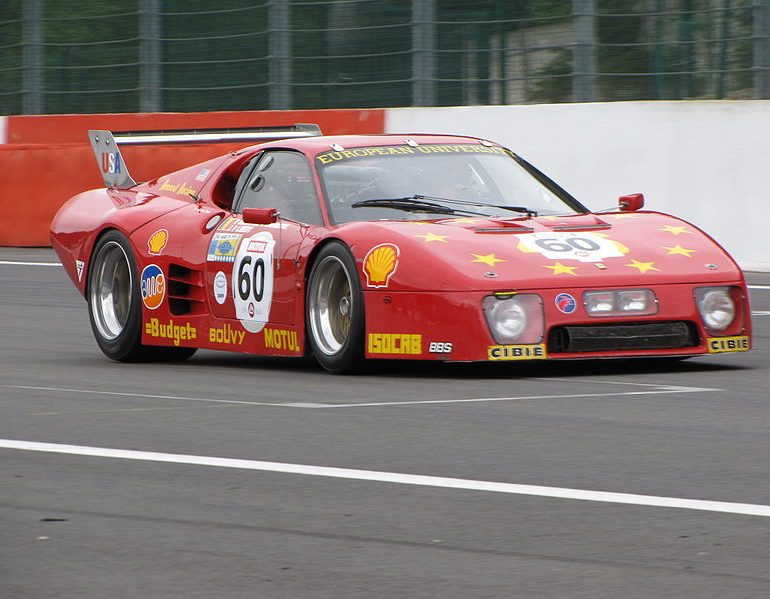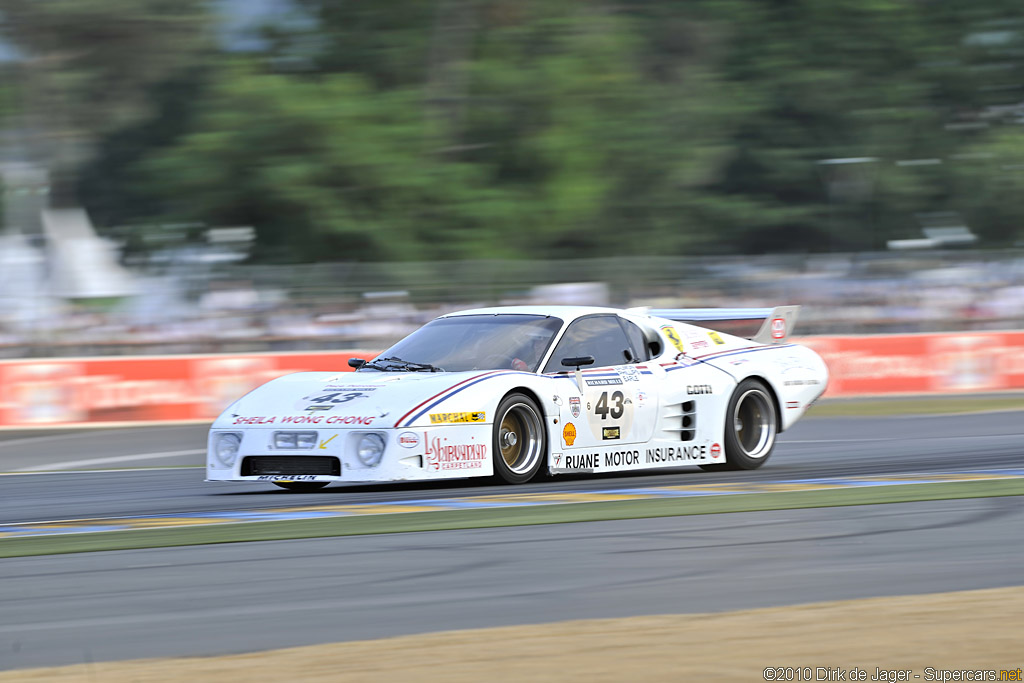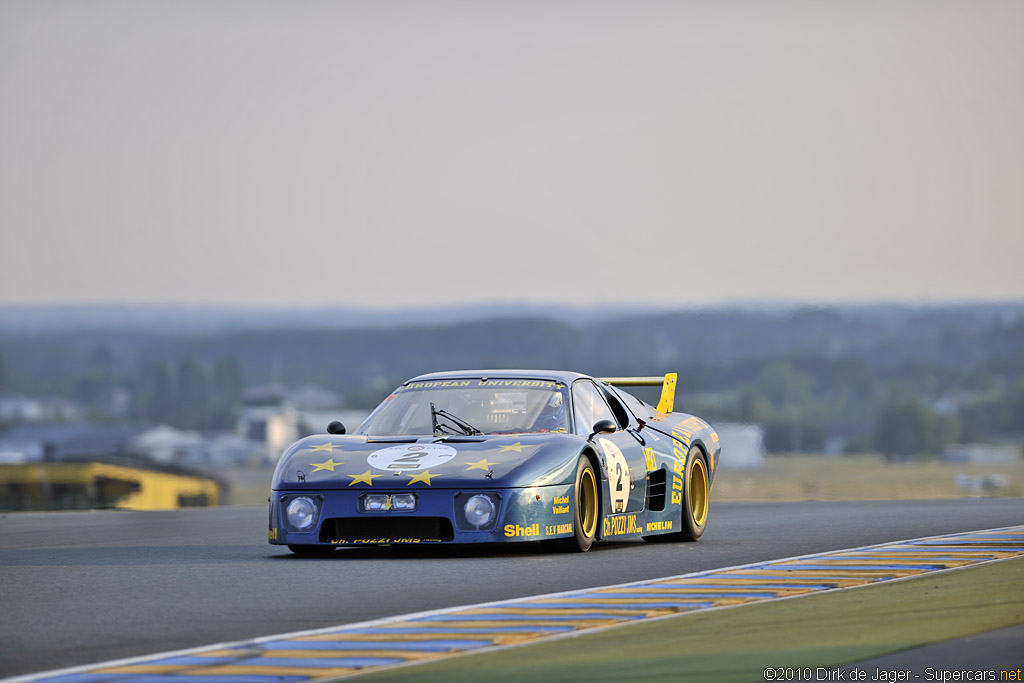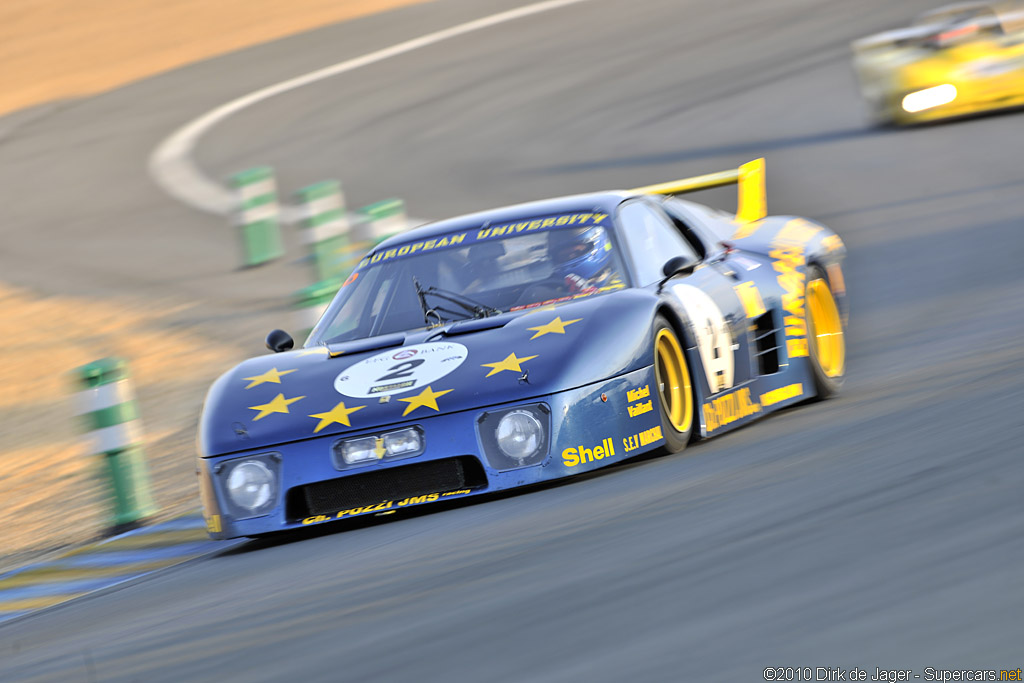1979 Ferrari 512 BB LM
In 1974, Luigi Chinetti’s North American Racing Team (NART) developed a racing variant of the 365 GT4 BB to replace the team’s Daytonas for use in sports car racing. NART’s car debuted at the 24 Hours of Daytona in 1975 before earning a sixth-place finish at the 12 Hours of Sebring two months later.
NART continued to use the car into 1978, by which time Ferrari had begun their own development of a racing variant of the updated 512 BB. Ferrari’s Customer Assistance Department extensively modified four 512s in 1978, adding wider wheel arches, a roof-mounted aerofoil, and reusing rear wings from Ferrari 312T2 Formula One cars. Power from the flat-12 was increased to 440 hp (328 kW) while the cars’ weight was decreased to approximately 1,200 kg (2,646 lb). The four cars, termed BB LM by Ferrari, were entered by Charles Pozzi, Ecurie Francorchamps, and NART in the 1978 24 Hours of Le Mans, but none was able to complete the race.
After the failure of the first batch, Ferrari worked on fixing the BB LM with a second development program in late 1978. The flat-12’s carburetors were replaced with an electronic fuel injection system to increase power to 470 hp (350 kW), a system later adapted to the 512 BBi. The production-based bodywork of the first BB/LMs was replaced by a new design developed by Pininfarina which was 16 in (41 cm) longer and carried over none of the original styling cues. The pop-up headlights were now replaced by fixed units integrated into the fascia, while the tail was lengthened to the maximum allowed by regulations. Nine of these revised BB LMs were built by Ferrari in 1979, while a further refined series of sixteen were built from 1980 to 1982. Amongst the BB LM’s best finishes was a fifth overall and first in the GTX class at the 1981 24 Hours of Le Mans.
Pictures & Gallery
See full 1979 Ferrari 512 BB LM Gallery here
Specs & Performance
| submitted by | Richard Owen |
| type | Racing Car |
| engine | Type F102 BB LM 180º V 12 |
| position | Mid, Longitudinal |
| aspiration | Natural |
| valvetrain | DOHC, 2 Valves per Cyl |
| fuel feed | Lucas Fuel injection |
| displacement | 4942 cc / 301.6 in³ |
| bore | 82 mm / 3.23 in |
| stroke | 78 mm / 3.07 in |
| power | 372.9 kw / 500 bhp @ 7000 rpm |
| specific output | 101.17 bhp per litre |
| bhp/weight | 357.14 bhp per tonne |
| torque | 451 nm / 332.6 ft lbs @ 4600 rpm |
| body / frame | Fibreglass over Steel Monocoque Tub & Tubular Frame |
| driven wheels | RWD |
| front brakes | Vented Discs |
| rear brakes | Vented Discs |
| steering | Rack and Pinion |
| f suspension | Wishbones |
| r suspension | Wishbones |
| curb weight | 1400 kg / 3086 lbs |
| transmission | 5-Speed Manual |







